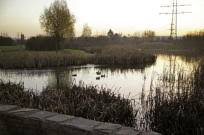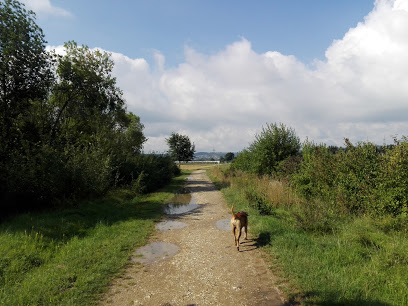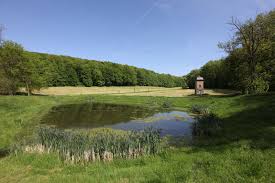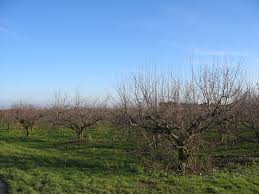North Bonn is characterized by industry, commerce, residential areas, traffic routes and agricultural areas. To improve recreational opportunities near Tannenbusch and Buschdorf between 1994 and 1996, Green District North was created.
Located directly on the city limits north of Tanenbosch on the highway. The farmland and dams of noise barriers along the A 555 were converted into a park-like landscape.
Thus, the green belt is the smallest green area in Nord-Boen, and the surrounding forest is the smallest part of the city's forest. The areas are located in the landscape protection area. It is located about 57 meters above sea level and is part of the fertile middle terrace of the Rhine valley.
Without human influence here, there are large beech and oak forests, which cover large parts of the Cologne-Bonn Plain until the Roman era. The fertile soil and climate are useful for agriculture, so all kinds of vegetables, fruits and grains have grown here for thousands of years.
Unfortunately, the area between Cologne and Bonn has become very important in recent years for industry and urban development, so that after the forest now also disappear agriculture more and more and give way to residential and commercial areas.
More importantly, the Green Corridor in the North, which will be linked in the next few years to other green spaces of the so-called "Green C", a landscape with forests, meadows and fields from Sieg to Ville in northern Bonn. Forest areas protect the recreation area through extensive meadows, lawns and hiking trails from the highway and residential areas, working not only as light protection and noise, but also improving air quality.
Trees are only ten years old, and with age, a valuable nematode forest, habitats are formed for many species of animals and plants. Maple and beech are the core of the forest, while elm, rowan and birds form the edge of a multi-layered forest. Especially that small forest situations are very sensitive, and it is important to protect them and not to enter them.





